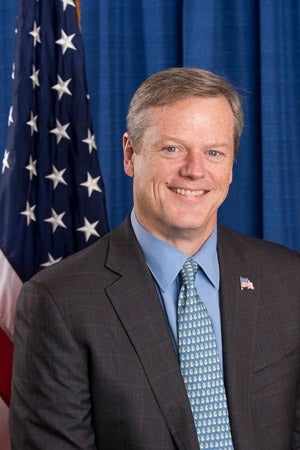Seeking federal dollars and more cost-controls, the Baker administration is reworking Medicaid on at least two fronts, moving toward population health and installing independent assessors for people in need of a range of services.
The health safety net program receives about half of its funding from the federal government and at $15.4 billion makes up the biggest chunk of Gov. Charlie Baker’s fiscal 2017 $39.55 billion budget.
Health and Human Services Secretary Marylou Sudders told the News Service the administration is looking to begin offering Medicaid coverage through accountable care organizations – usually provider groups that take on the risk and responsibility for keeping a population healthy.
The administration is also seeking more oversight in the area of long-term services and supports, where Medicaid provides funding for home health visits, nursing home care and other long-term expenses.
Sudders said long-term services makes up $4.5 billion of Medicaid spending and starting March 1 the state will start requiring prior approval for Medicaid expenditures in long-term service. Sudders said physicians often refer patients to home health from an agency associated with the same physician, so she wants to install conflict-free assessments of patients’ needs.
“What we really want is to ensure that whatever your needs are, you get a full assessment of what your needs are and get the full range of services and not just a service from a provider who works for that agency,” Sudders said.
Al Norman, of Mass Home Care, said in an email there is a “need to prevent providers from enrolling consumers and ordering services” without an independent third party determining the need. Norman said Mass Home Care submitted a proposal to the state for an “independent agent infrastructure, which would eliminate self-dealing and conflict of interest among providers.”
Sudders said people receiving long-term services often have complex health needs and require a “robust set of services.”
Pioneer Accountable Care Organizations are available through Medicare, and commercial plans offer ACO plans, but Medicaid does not, Sudders said.
Baker said a five-year waiver worth billions of dollars with the Centers for Medicare and Medicaid Services only included three years of funding because the federal government wanted more reform in moving toward accountable care organizations.
Last year Steward Health Care, a for-profit hospital chain that provides accountable care organization coverage, pushed for a rider in the state budget to move MassHealth – the state’s Medicaid overseer – toward ACOs.
The Massachusetts Association of Health Plans opposed that legislation, arguing it would give Steward a “backdoor” to operate as an insurer.
Provider groups seeking to take on the health needs of a population of MassHealth clients might have that opportunity in the future. Sudders said she wants to “restructure” MassHealth into “more of a population health management system.”
“We’re really looking to create much more accountable care,” Sudders said. She said, “If we do it right, we’ll actually help to manage costs.”
A MassHealth enrollment redetermination effort undertaken by the Baker administration in 2015 reduced enrollment in the program by more than 250,000 people, from 2 million in January 2015 to 1.74 million in May, according to administration figures. The governor in his new spending plan, unveiled in January, hopes to limit MassHealth spending growth to 5 percent above fiscal 2016 by “managing enrollment and making other critical adjustments.”
The Massachusetts Hospital Association reported over the weekend that the Baker administration has eliminated the state’s “customary” $30 million annual contribution to the Health Safety Net pool that pays for health care provided to uninsured or underinsured people.
Hospitals and private insurers pay $165 million annually to fund the Health Safety Net, and the state contributes $30 million, according to the association. When the cost of care exceeds the amount in the pool – the shortfall is paid entirely by hospitals and if the state does not make its contribution, the shortfall is expected to exceed $100 million in fiscal 2016, the association said.
“Hospitals which are already taxed to help fund the Health Safety Net and which fund 100 percent of any shortfall, are now in effect being required to fund other parts of the state budget having nothing to do with hospitals through this budgetary maneuver,” MHA President & CEO Lynn Nicholas, wrote in a letter Thursday to the House and Senate Chairs of the Ways and Means committees.

